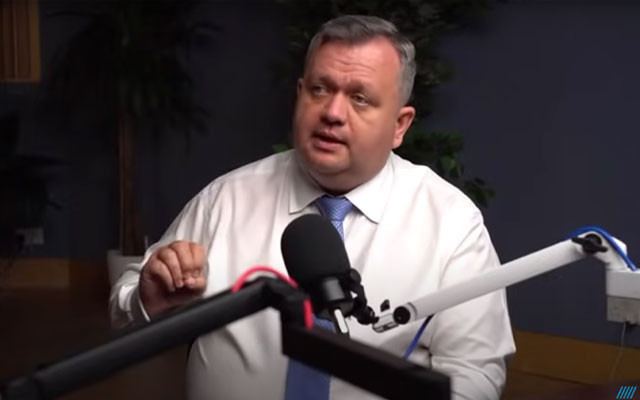
Confiscation of russian assets in Britain: between politics and law

The issue of using frozen russian assets in the UK remains open. The political will for this exists, but the mechanism for confiscation requires a clear legal framework agreed at the international level.
The topic of confiscating russian assets for the benefit of Ukraine was explored by journalists from the Pryamy TV channel during an interview with the representative of the UNBA in Scotland, the United Kingdom of Great Britain and Northern Ireland Oleksandr Chernykh. He explained the current stage of legal work on this issue and why, even with the political will, it has not yet been possible to convert the frozen billions into real compensation.
According to O. Chernykh, the issue of compensation for losses from russian assets cannot be resolved quickly. The mechanism has not yet been created — and not because of a lack of desire. After all, such a decision requires not only political will, which everyone has already demonstrated, but above all a legal model that complies with international law. There has never been such a precedent in the modern world.
The main obstacle is the difference in legal systems and national principles of property protection. In the UK, for example, private property rights have been sacrosanct since the Magna Carta of 1215. Therefore, assets can only be seized by court order, not by political decree. That is why the governments of democratic states are looking for a way to use Russian funds legally, without destroying their own legal traditions.
Responding to a question about the possibility of directing fines imposed on British companies for violating sanctions to aid Ukraine, O. Chernykh emphasized that these are ordinary administrative penalties that go to the United Kingdom's state budget. «This fine is the same sanction as, for example, running a red light or not paying taxes. These funds go to the British budget. They are not mixed, there is no separate body that collects these fines for Ukraine. This is a punishment for those who have not complied with the requirements of the law and a lesson for others», - the advocate explained.
He also clarified that humanitarian aid to Ukrainians in Britain — housing, social benefits — is financed from a different budget, which has the status of a voluntary commitment by the government, not an obligation to Ukraine.
The journalist recalled another possible source: according to the government portal, Britain has frozen about 25 billion Russian assets. «We recently saw the UK government transfer 1 billion to Ukraine in aid from the income received, - the advocate confirmed. - That is, russian assets are not being used directly at the moment. The profits are being used». Any unilateral use of these assets could be seen as interfering with another country's sovereignty, which is against international law.
During the conversation, special attention was drawn to the London mayor's initiative to confiscate the real estate of russian oligarchs and transfer it to Ukrainians who have fled the war. According to British media estimates, the value of such property reaches £1 billion.
O. Chernykh called this initiative «a political statement that reflects his commitment to Ukraine». However, implementation is possible. «This mechanism is entirely realistic. The question is that the London City Council must adopt and work out this decision and agree it with the Government of the United Kingdom, - explained the representative of the UNBA. - Britain is a country of law and justice. If one decision is made, it must be applied in other similar situations».
According to the expert, there are still prospects for the confiscation of assets obtained by criminal means. There have already been such precedents in Britain, but the process is complex and requires clear evidence of the illegal origin of the funds.
© 2025 Unba.org.ua Всі права захищені
"Національна Асоціація Адвокатів України". Передрук та інше використання матеріалів, що розміщені на даному веб-сайті дозволяється за умови посилання на джерело. Інтернет-видання та засоби масової інформації можуть використовувати матеріали сайту, розміщувати відео з офіційного веб-сайту Національної Асоціації Адвокатів України на власних веб-сторінках, за умови гіперпосилання на офіційний веб-сайт Національної Асоціації Адвокатів України. Заборонено передрук та використання матеріалів, у яких міститься посилання на інші інтернет-видання та засоби масової інформації. Матеріали позначені міткою "Реклама", публікуються на правах реклами.